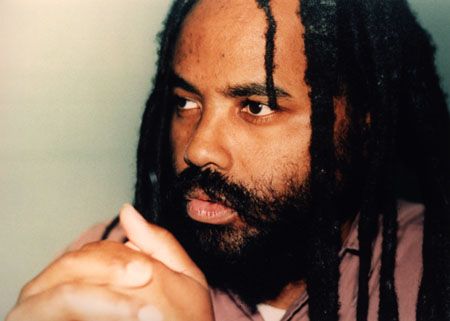The majority of people think that fascism could never happen in a country like the u.s.a. , but I'm sure if you went to places that have felt the ravages of u.s. imperialism for decades, they would disagree .
Read this piece by political prisoner Mumia Abu Jamal to truly understand what amerikkkan fascism looks like .
Ignoring history to our detriment

These lightly edited remarks were made by Mumia Abu-Jamal in a prerecorded message that aired on October 14 during “Conversations with Trudy,” an online interview program hosted by Trudy Knockless. The full episode is available at tinyurl.com/y3pscmjr and includes commentary by Workers World Party member Ted Kelly.
Why did I even suggest the radical notion that the government is totally fascist? Most historians would disagree with the idea that there could ever be fascism in the U.S. As a student of history, I probably would have disagreed myself a few years ago.
I know that in my youth as a member of the Black Panther Party we spoke about “the fascist government” of Richard Nixon, the former Attorney General John Mitchell and Spiro Agnew, and their war against Black America and Black freedom movements. We used words like fascism and I think we were trying to speak about the threat of things coming but not the threat of things that existed.
Until a friend of mine — my doctor, actually — talked to me about the period of American history after Reconstruction. Again, students of history know we’re talking about a period of history after 1865, after the Civil War, and after the so-called Reconstruction amendments to the Constitution, the 13th, the 14th, and the 15th amendments which granted the rights to vote and the right to be a citizen to African American freedmen. So for ten, perhaps fifteen years, Reconstruction obtained that in many parts of the South.
And then it was crushed by terrorist wars waged by the Ku Klux Klan, the White Citizens Council, and other similar white supremacist organizations allied with the state to crush the freedom movement of African American people. This was a fascist war that the government ignored because it was on one side.
People wrote to Washington but they got no answers. Black people were driven out of Congress and then driven away from the vote at the risk of being robbed, beaten, terrorized, murdered, or burned — or all those things. So we had fascism in the United States at the end of the 19th century and the beginning of the 20th.
W.E.B. DuBois writes about the Red Summers of the teens of the 20th century, 1918, 1919. And there were white riots against Black communities in Cincinnati, in Philadelphia, in Louisville, and all across the country. That was fascism. And we’re used to thinking about fascism in the context of Mussolini in Italy or Hitler in Germany. But we’re not used to seeing this read as an American face or in an American accent. And that’s our fault. That’s our problem. We have ignored history to our detriment.
Think about this. If the American Constitution granted the rights of Black people to vote after the Civil War ended in 1865, why did it take the Civil Rights Movement of 100 years later to make those rights real and to call for the recall of laws that diminished Black freedom?
So we’re thinking about fascism. And I think we need to look at it and then look at this era that we’re living in now.
Ona MOVE. From a Prison Nation, this is Mumia Abu-Jamal.
